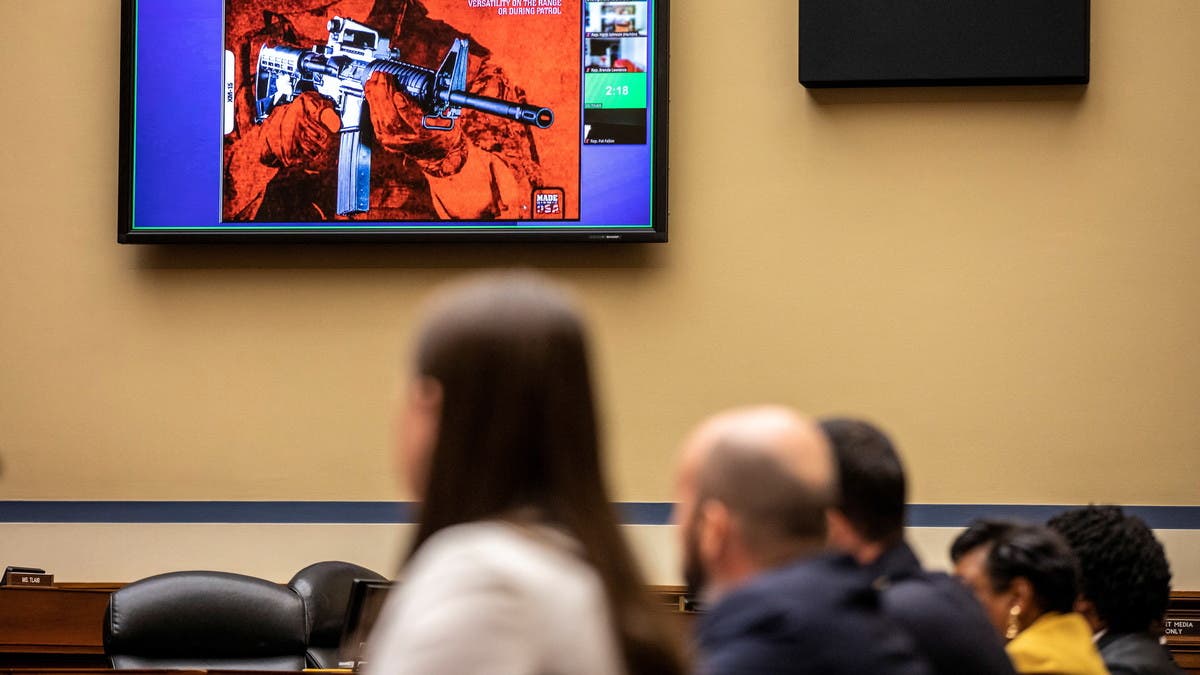The House approved a “red flag” bill Thursday that would allow families, police and others to ask federal courts to order the removal of firearms from people at extreme risk of harming themselves or others.
It’s the Democratic-controlled chamber’s latest response to US mass shootings and likely stands little chance in the Senate.
For the latest headlines, follow our Google News channel online or via the app.
Nineteen states and the District of Columbia currently have such “red flag” laws.
Under the House bill, a judge could issue an order to temporarily remove and store the firearms until a hearing can be held, up to two weeks later, to determine whether the firearms should be returned or kept for a specific period. The bill passed on a mostly party-line vote of 224-202.
“We are painfully aware that we cannot do enough to save every life, and there is no one answer that will solve this problem,” said Rep. Jerrold Nadler, the Democratic chairman of the House Judiciary Committee. “But we do know that taking guns out of the hands of people who pose a danger to themselves, or others, would save countless lives.”
The vote came after an emotional week that saw congressional testimony from victims of recent mass shootings in Uvalde, Texas, and Buffalo, New York, and came ahead of a planned march Saturday in Washington by groups advocating stronger gun controls.
On Wednesday the House passed a wide-ranging gun control bill that would raise the age limit for purchasing a semi-automatic rifle and prohibit the sale of ammunition magazines with a capacity of more than 15 rounds. It too, has virtually no chance in the Senate.
House Republicans criticized the “red flag” bill as giving the federal government the ability to take a law-abiding person’s guns without them having the ability to contest it beforehand.
“It would allows the courts to take guns away from people without notice and without even the right to appear in the hearing to defend themselves in court,” said Rep. Mike Johnson, R-La.
The Congressional Budget Office projects that the bill would lead to roughly 10,000 emergency petitions being filed annually with the courts.
The bill would also create a grant program at the US Department of Justice to encourage states to adopt “red flag” laws and support the 19 states that have already implemented them.
Five Republican lawmakers voted for the bill: Reps. Brian Fitzpatrick of Pennsylvania, Anthony Gonzalez of Ohio, Chris Jacobs of New York, Adam Kinzinger of Illinois and Fred Upton of Michigan. Only Fitzpatrick is seeking reelection. Rep. Jared Golden of Maine was the only Democratic member to vote no.
The lead sponsors of the bill were Democratic Reps. Salud Carbajal of California and Lucy McBath of Georgia, whose son, Jordan Davis, was slain at a Jacksonville, Florida gas station in 2012 by a white man angry over the loud music the Black teenager and his friends had been playing in their car.
President Joe Biden strongly supports the bill. The White House said it would “make significant progress toward keeping guns out of dangerous hands.” However, the legislation is unlikely to advance in the Senate, where at least 10 Republican senators would be needed.
Instead, senators are focusing on incremental policy changes through a system that would send funds and other incentives to states to bolster security at school campuses, provide more mental health services to young people and possibly encourage states to pursue red-flag laws of their own.
Sen. John Cornyn of Texas, who is leading negotiations on the Republican side, said one focus is on enhancing the background check system known as NICS, to include young buyers’ criminal records before they turned 18.
“Adding juvenile records to the NICS system is a common sense way to ensure we have a complete picture of the buyer’s history,” Cornyn said.
He voice optimism that senators will be able to reach an agreement.
“Around here, if there’s a will, there is a way, and I believe we do have the will and we will find the way,” Cornyn said.
House Speaker Nancy Pelosi, D-Calif.., said the House stands ready to consider a gun bill from the Senate “if it’s life-saving and can make a difference.”
But she cautioned: “We cannot have subterfuge. We can’t have them say well, it’s about this and it’s about that. No, it’s about guns.”
Read more:
Court: Armed man arrested near Supreme Court Justice Kavanaugh’s house
US mass shootings account for 73 pct of all incidents in developed countries: Study
Toddler, two, accidentally shoots and kills father in US

 World3 years ago
World3 years ago
 World3 years ago
World3 years ago
 Business1 year ago
Business1 year ago
 Entertainment7 years ago
Entertainment7 years ago
 World7 years ago
World7 years ago
 Entertainment7 years ago
Entertainment7 years ago






